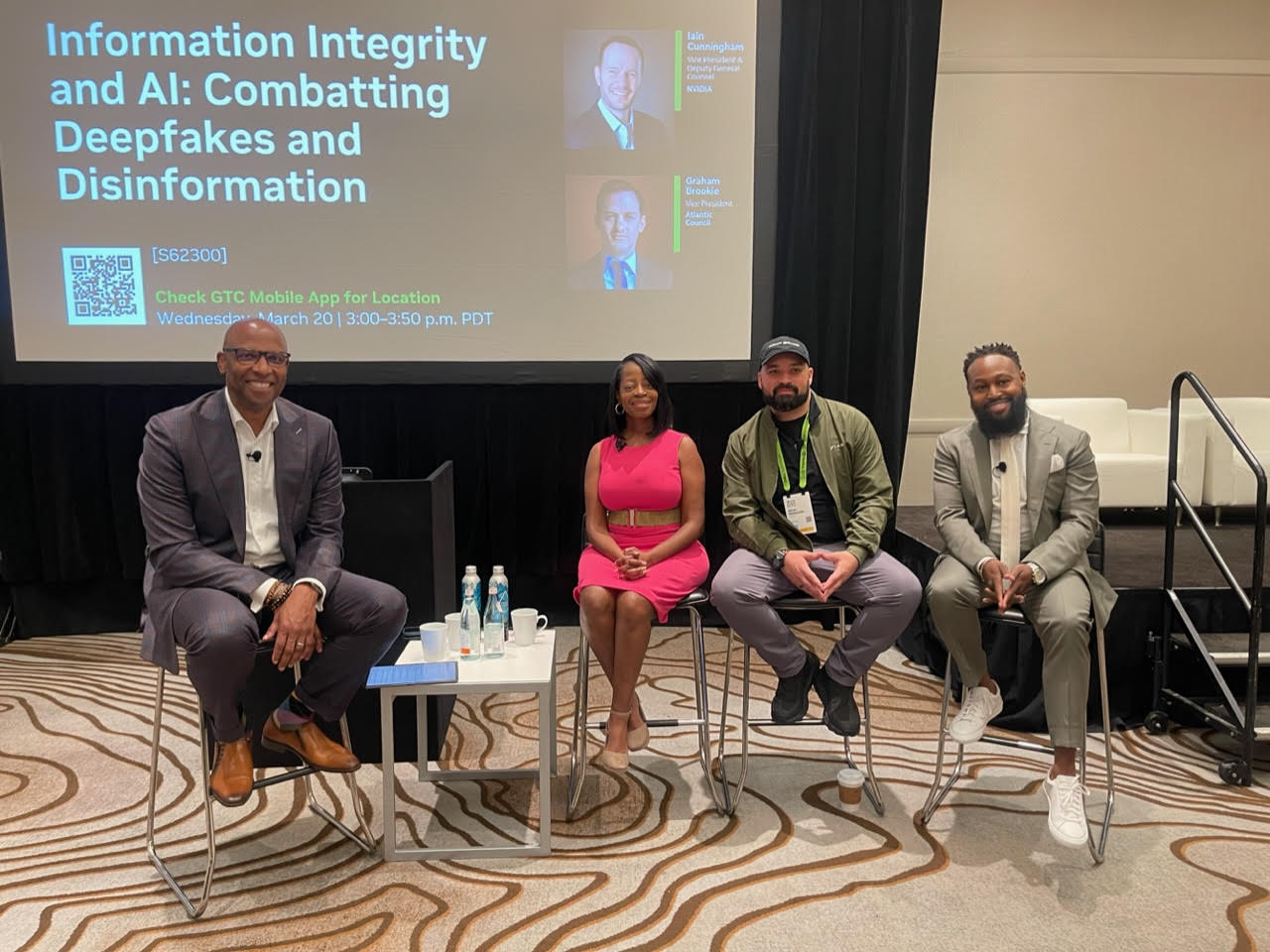Tanu T. Henry | California Black Media
Nvidia, the third largest corporation in the world valued at $2.3 trillion, held its annual Global Technology Conference and expo at the Convention Center in San Jose from March 18 to 21.
An estimated 17,000 guests attended.
During his Keynote address on March18, CEO Jensen Huang unveiled a new groundbreaking Graphics Processing Unit (GPU) system developed by the company. This cutting-edge platform is named in honor of the renowned African American mathematician and statistician David Blackwell.
Huang told the audience that the Blackwell system is the “most advanced GPU in the world today.”
“This GPU is named after David Blackwell, an American mathematician and statistician whose work has had a lasting impact in mathematics as well as the specific domain of AI,” said Huang.
“Mathematician. Game theorist. Probability,” said Huang of the computer scientist. “We thought it was a perfect name.”
“Blackwell is not a chip. Blackwell is the name of a platform,” Huang continued.
Blackwell, who was born in Centralia, Illinois, earned a B.S. in Mathematics from the University of Illinois. He was the first African American inducted into the National Academy of the Sciences. A former professor at the University of California at Berkeley, Blackwell passed away in 2010 at 91 years old.
Blackwell, who was awarded a Rosenwald Fellowship at Princeton also taught at three HBCUs: Southern University of Baton Rouge, Clark Atlanta University and Howard University, where he served as chair of the Department of Mathematics.
According to Nvidia, the Blackwell GPU pairs two Blackwell GPUs to a Grace CPU. Together, they generate 720 petaflops of training performance.
During the conference, Nvidia organized a panel discussion titled Bridging the AI Divide: Expanding Access and Training to Nontraditional Talents and Underserved Communities.”
During that discussion, panelists talked about what companies can do to make AI Technologies — and the industry, more broadly – accessible to Black Americans and other minorities, particularly those with who live in areas with limited digital infrastructure and opportunities.
Louis Stewart, Head of Strategic Initiatives, Developer Ecosystem, NVIDIA, welcomed panelists and guests to the session and talked about the critical role of diversity in shaping the future of AI.
“I am excited by this panel. I’m excited that you all attended. This is an important piece of the conversation as this technology advances,” said Stewart, a member of the Board of California Black Media, who served as moderator.
The “Bridging the AI Divide” panelists were three African Americans who are advocates for diversity, equity and inclusion in AI: Kieran. Blanks, Vice President of Workforce Systems, Cortex Innovation District; Angie Bush, Founder, Black Women in Artificial Intelligence and Abran Maldonado , Co-Founder, Create Labs.
“I know it’s under attack, but diversity is important,” said Bush. “The facts are when you have a diverse workforce, your product just got better. When men walk in the room, your product just got better. When women walk in the room, your product just got better. When people with different abilities walk in the room your product just got better.”
The panelists unanimously emphasized that it is always a good time to get started in AI. Because the technology is evolving rapidly, they encouraged individuals to find an area of interest and dive in.
Black employees at Nvidia also hosted a separate panel discussion at the organization’s headquarters followed by a reception and networking event.
“This conference is definitely inclusive,” said Shonda Witherspoon, a member of Black Girls Code, who attended the conference. “Seeing Black representation and attending a panel like this focused on diversity was pleasantly unexpected, but definitely made us feel included in this scary new world of AI. This just lets us know that a path is being carved for us, and for us to participate, you have to show up.”











